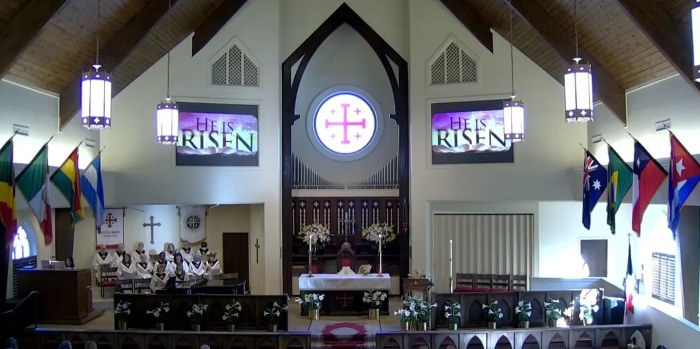
A member of the prosecution in a church trial against an Anglican bishop who allegedly mishandled abuse cases is claiming the court's proceedings have been tainted.
Bishop Stewart Ruch III of the Anglican Church in North America (ACNA) Diocese of the Upper Midwest has been on trial for allegedly failing to properly respond to sexual and spiritual abuse allegations within his diocese.
Deputy Prosecutor Rachel Thebeau wrote a multi-page letter addressed to the “Brothers and Sisters in the ACNA” last week in which she alleged that “very important information is being withheld from you by the Court, the Archbishop, and the Archbishop’s staff.”
“The trial process was tainted because a member of the Court, enabled by the Archbishop’s staff, made a series of decisions that fatally undermined the Court's integrity, culminating in his lengthy domination of the court proceedings,” wrote Thebeau.
According to Thebeau, the unnamed member of the court had been given access to some of her Dropbox folders by ACNA officials without her permission or knowledge.
“It was abundantly clear that the court member had just enough information to be dangerous. What he has is not a complete set of documents and files, and he does not have the context of the documentation in his possession,” Thebeau continued.
“Based on incomplete and misunderstood information, he made damaging insinuations and handed Bishop Ruch his favorite red herring which now enables him to obscure the facts of the case as part of his defense.”
Thebeau went on to say that she was “alarmingly disappointed” by the response of the archbishop and the court, believing that there was a serious lack of accountability in the process.
“In the real world, the judge would be disciplined for judicial misconduct and those who gave him improper access to a party’s files would be fired and disciplined,” she added.
“According to the Archbishop’s recent letter to the whole ACNA, rather than being reprimanded or removed, this same chancellor was then tasked with the important job of selecting the new prosecutor.”
In a statement posted to Anglican Ink last Friday, the ACNA Archbishop’s Office said that the “parties to the case (i.e. the prosecutor and the defendant) are entitled to raise any concerns directly with the court or the chancellor.”
“The Province has consistently emphasized that public statements by those involved in the trial, or by other church leaders, imperils the integrity of the process and reduces the chances of a just and acceptable verdict, which has already taken too long to see,” the office added.
“It is not appropriate for the Province to litigate in public any complaints that the former prosecutor or his legal assistant, Ms. Thebeau, have with the Court or this process until it has reached a conclusion.”
Thebeau’s letter comes after Alan Runyan, a longtime practicing attorney who served as the provincial prosecutor at the trial, sent a letter to ACNA Archbishop Steve Wood announcing his resignation.
Runyan resigned because of an incident during the fifth day of proceedings, when a member of the court began a line of questioning based on evidence not presented at trial.
“The Court member's statements and questions put the integrity of the investigative process at issue in these proceedings despite the Court's prior ruling that those inquiries were improper,” wrote Runyan.
“At that point, all six of the other members of the Court had been exposed to an unwarranted suspicion of provincial investigative bias brought into the trial by a single Court member, contrary to the Court's duty to determine the outcome based solely on the evidence in the trial record.”
Runyan believed that “the trial process had been irreparably tainted,” noting that a “trial process that bears within it the seed of impropriety, no matter the outcome, must change.”
As a result of Runyan’s resignation, the ACNA Ecclesiastical Court for the Trial of a Bishop issued an order postponing the resumption of the trial from July 21 to Aug. 11.
For his part, Wood wrote in a letter that he considered Runyan's resignation to be “an unsettling and surprising development” in the proceedings, and labeled it “a serious and concerning situation for the Church.”